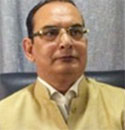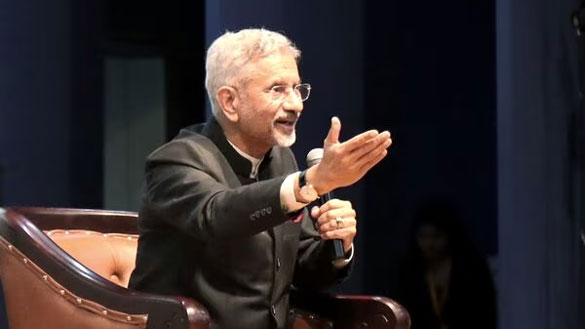Issue Of The Red Sea, The Gulf Of Aden: Indo-Iran Ties Strengthened Further

By
Asad Mirza, New Age Islam
23 January
2024
External Affairs Minister S. Jaishankar’s
Two-Day Visit To Iran, Last Week, Was A Crucially Timed Diplomatic Engagement.
The Visit Besides Discussing The Regional Security Situation Was Also Aimed At
Further Strengthening The Political, Economic And Cultural Aspects Of The
Bilateral Relations.
-----

External Affairs Minister S Jaishankar will visit Iran on January 14-15
(ANI)
-----
As the crisis
in the Red Sea spurred by the Israel-Hamas war escalates, India has begun a
diplomatic outreach to crucial regional players to secure the country’s trade
and strategic interests. The outreach treads a line of neutrality in the
conflict between the Western powers and the Islamic world wherein India has not
joined the US-led multinational naval coalition in the Red Sea while it remains
critical of the Houthis’ violence.
In this
backdrop, Minister of External Affair S Jaishankar’s recent visit to Tehran was
aimed to express India’s concerns on the increasing attacks by the allegedly
Iran-backed Houthis in the Red Sea, which he shared with Iranian Foreign
Minister Hossein Amirabdollahian.
MEA
spokesperson said the issue of the Red Sea, the Gulf of Aden, and the violence
and destabilisation there, were among the things that were discussed, as India
is ‘deeply concerned about the whole situation’.
In the last
weeks, both the US and the UK have launched air strikes targeting the Houthi
positions in Yemen. On its part, India has been closely monitoring the
unfolding situation in the Red Sea. The issue also figured in a phone
conversation between Jaishankar and US Secretary of State Antony Blinken on 11
January.
Countries
like India are concerned that the conflict may impact most of Asian trade with
Europe. This may lead to a supply chain restructuring, with neighbouring
countries at higher costs.
Iran
supposedly has close links with the Houthi militia in Yemen which have launched
a series of attacks on shipping vessels plying the Red Sea route since
mid-November. A key motivation for Jaishankar’s visit was the recent attacks on
several India-linked shipping vessels.
Terming the
attacks on ships in the vicinity of India as a matter of ‘grave concern’ to the
international community, S Jaishankar said in Tehran that such threats have a
direct bearing on India's energy and economic interest as he underlined that
this ‘fraught situation’ is not to the benefit of any party.
"There
has also recently been a perceptible increase in threats to the safety of
maritime commercial traffic in this important part of the Indian Ocean,"
he said in a joint press statement after wide-ranging talks with his Iranian
counterpart Hossein Amirabdollahian.
He stressed
that it's important that this issue be ‘speedily addressed’, in an apparent
reference to the targeting of merchant vessels in the Red Sea - one of the
busiest trade routes - by Iranian-backed Yemen's Houthi rebels amid the
Israel-Hamas conflict.
Economic
Aspects
EAM
Jaishankar also met with Iran’s Minister of Roads and Urban Development Mehrdad
Bazrpash and held a detailed and productive discussion on establishing a
long-term cooperation framework on the strategically vital Chabahar Port.
During the visit, on 15 January, India and Iran signed an agreement on the
further development of the Chabahar Port
Located in
Sistan-Balochistan province on Iran's southern coast, the Chabahar Port is
being developed jointly by India and Iran to boost connectivity and trade ties.
India has been pushing for the port project to boost regional trade, especially
for its connectivity to Afghanistan.
Earlier,
Jaishankar had projected the Chabahar Port as a ‘key regional transit hub’ at a
connectivity conference in Tashkent in 2021. The port is also seen as a key hub
for the International North-South Transport Corridor (INSTC) project.
The INSTC
project is a 7,200-km-long multimode transport project for moving freight
between India, Iran, Afghanistan, Armenia, Azerbaijan, Russia, Central Asia and
Europe.
Cultural
Links
In a
significant move to deepen cultural ties, EAM S Jaishankar announced that the
Government of India has decided to include Farsi (Persian) as one of the nine
classical languages in India under the New Education Policy.
"The
government of India has decided to include Farsi as one of the nine classical
languages of India in our New Education Policy," said Jaishankar,
highlighting the cultural, literary, and linguistic connections between Iran
and India.
Jaishankar,
made the above remarks during a joint press joint press conference with his
Iranian counterpart, H Amirabdollahian on 15 January.
Indian
Outreach
Indian
foreign minister’s recent visit to Iran was part of the diplomatic efforts that
have been stepped up to secure India’s interests regionally.
Though, the
Shiite population in India is quite small compared to the Sunni Muslims. Yet,
the Indian government has always been able to build and balance its
relationship with Iran and Saudi Arabia, both seen as the leaders of the Shia
and Sunni communities globally. This diplomatic balancing has always worked to
India’s advantage, besides giving it a regional clout
At a
regional level India has always accorded a significant priority to its ties
with Iran. As the country apart from offering it a gateway to the central Asian
republics and also Afghanistan, has also been a reliable oil supplier to India,
and that too on a favourable rupee payment basis.
Therefore,
the issues discussed during the foreign minister’s visit also encompassed all
aspects of the sustained relationship between India and Iran, as they covered
regional security, trade and development and cultural ties. The announcement
related to Farsi, was also timed right and was aimed at targeting the Muslim
minority in the country.
Over the
years Indo-Iran ties have moved ahead, in spite of meddling by other countries
and the current diplomatic policy led by PM Modi and Iranian President Ebrahim
Raisi, in this regard has not only carried on the old relationship, but the
manner in which trade, economic and cultural tries between the two countries
have progressed, shows their commitment to build a long-lasting relationship.
-----
Asad Mirza is a Delhi-based senior political and
international affairs commentator.
URL: https://newageislam.com/current-affairs/red-sea-gulf-aden-indo-iran/d/131571
New Age Islam, Islam Online, Islamic
Website, African Muslim News, Arab World News, South Asia News, Indian Muslim News, World Muslim News, Women in Islam, Islamic Feminism, Arab Women, Women In Arab, Islamophobia in America, Muslim Women in West, Islam Women and Feminism
